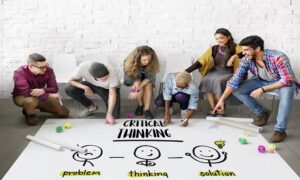Industrial Relations (IR), Employee Relations (ER) and Trade Union Harmony
Course Fee:
OBJECTIVE:
By the end of this course, participants will learn to:
• Develop a collaborative approach to Industrial Relations (IR) & Employee Relations (ER)
• Examine techniques for enhancing & transforming Industrial Relations (IR), Employee Relations (ER) and Trade Unionism
• Appreciate the importance of employee engagement and empowerment
• Critically analyse effective conflict resolution and workplace mediation
• Describe the emerging challenges to trade unions globally and in Africa
CONTENT:
Employee, Labour & Industrial Relations in Africa
• The context for employee & industrial relations
• Trade unionism in Nigeria – Past, Present & Future
• Survival/relevance of trade unions – tools for engagement
• Current Global trends in Employee & Industrial Relations
• The changing employment relationship and psychological contract
Negotiation Skills for Industrial Harmony
• A win-win approach to negotiation
• Stages of negotiation
• The Coleman Raider “bare-bones” model
• Exploring competition and cooperation
• Introduction to reframing techniques
Managing Conflict and Promoting Industrial Harmony
• Resolving and managing conflict
• Avoiding conflict escalation
• Alternative dispute resolution (ADR)
• Understanding arbitration, conciliation, and mediation
• Workplace mediation techniques and skills
Key 2nd Decade Issues for the Workplace
• Emerging workplace issues for ER/IR and Trade Unionists
• Understanding mental health in the workplace
• Mental Health First Aid (MHFA) techniques
• Workplace bullying – analysis, intervention and prevention
• The future of work – robotics, Artificial Intelligence (AI) and the Flexible Firm
The Tools of Engagement
• Understanding transformational leadership
• The power of empathy
• Principles of engagement
• The importance of stakeholder engagement
• Personal action planning
FOR WHOM:
Executive Management, Human Resources Managers and Personnel, Admin Managers, Heads of Departments, Industrial Relations Managers, Safety Managers, Lawyers, Members of the Workers Unions and other Managers who perform related functions in both the Public and Private Sectors
Methodology
The training methodology integrates lectures, interactive discussions, collaborative group exercises, and illustrative examples. Participants will acquire a blend of theoretical insights and hands-on practical experience, emphasizing the application of learned techniques. This approach ensures that attendees return to their professional environments equipped with both the competence and self-assurance to effectively implement the acquired skills in their responsibilities.
DATE:
1ST BATCH: 3rd – 6th Feb, 2026
2ND BATCH: 26th – 29th May, 2026
3RD BATCH: 22nd – 25th Sep, 2026
Course Category
- Human Resource and Admin
- Finance and Accounting
- Internal Audit and Fraud Control
- Stores, Procurement and Supply Chain
- Information Technology
- Aviation and Maritime
- Banking, Investment and Insurance
- Business Communication
- Construction Management & Civil Engineering
- Engineering, Instrumentation and Maintenance
- Entrepreneurship and Business
- Hotel & Hospitality Management
- Law and Contract Management
- Management and Leadership
- Project Management
- Public Relations
- Public Sector
- Sales, Marketing & Customer Service
- Secretaries & Personal Assistants
- Transport & Logistics
- Security and Safety
More Courses
VENUE
25, Queen street, Alagomeji Bus Stop, Yaba, Lagos









